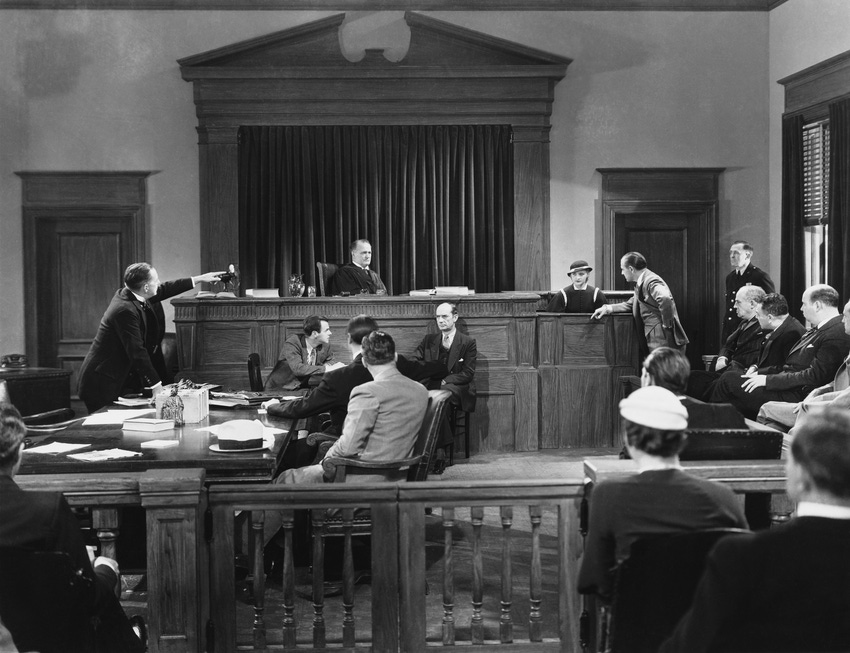Telco industry accuses California of violating US Constitution
It was only going to be a matter of time, but the telco industry is taking California to court over the decision to reinstate net neutrality rules.
October 4, 2018

It was only going to be a matter of time, but the telco industry is taking California to court over the decision to reinstate net neutrality rules.
While the rules prevent the telcos from making additional revenue through the creation of a two-lane communications highway, there is something bigger at stake here. In reinstating the net neutrality rules, California is not only questioning the validity of the Communications Act, the bedrock of regulations in the telco industry, but according to the coalition of associations suing the state, it is contradicting and undermining the US Constitution.
The American Cable Association (ACA), The Wireless Association (CTIA), The Internet & Television Association (NCTA) and USTelecom are the plaintiffs in the case, with California Attorney General Xavier Becerra is named as the defendant.
“This case presents a classic example of unconstitutional state regulation,” the filing reads. “The State of California has enacted SB-822, entitled the ‘California Internet Consumer Protection and Net Neutrality Act of 2018’, directly regulating the provision of broadband Internet access services (BIAS).
“This statute was purposefully intended to countermand and undermine federal law by imposing on BIAS the very same regulations that the Federal Communications Commission (FCC) expressly repealed in its 2018 Restoring Internet Freedom Order (and by adopting even more restrictive regulations), despite the fact that both the FCC decision and the federal Communications Act of 1934, as amended (Communications Act), prohibit states from taking such action with respect to jurisdictionally interstate services like BIAS.”
According to the lawsuit, the State of California is not only violating the FCC’s 2018 Order, it is ignoring clauses in the Communications Act, which declare states cannot pass local regulations which contradict FCC rules, and also two important aspects of the US Constitution. Firstly, article VI, clause 2, the Supremacy Clause which states the Constitution, federal laws made pursuant to it, and treaties made under its authority, dictate the supreme law of the US.
Secondly, the Commerce Clause declares no state can regulate conduct occurring outside of its borders. As California (or anyone for that matter) fully dissect what traffic originates, traverses and terminates in the state exclusively, California is indirectly imposing its own rules on other states, and potentially other countries.
In signing net neutrality back into the regulatory rulebook, Governor Jerry Brown has opened up a whirlwind of complications and consequences. As Chairman of the FCC, Ajit Pai has the authority to dictate the future of the telecommunications industry. This has been formalised in both the Communications Act and the US Constitution.
In splintering the rulebook, California is undermining the concept of US law and regulatory policy. Should the net neutrality rules be allowed to stand in California, the whole rule book and regulatory landscape could be shaken up; California would have set precedent in contradicting both the Communications Act and the US Constitution. This is of course dependent on whether you agree with the coalition’s interpretation of the documentation, but could this be the beginning of a constitutional crisis?
Of course, as we are in a time of incredibly combative politics in the US, the two parties could not be further apart. Pai is pushing for an internet which would be the digital equivalent of the wild-west, while California is promoting heavy handed regulation. The answer lies somewhere in the middle.
The telcos, remaining at arms-length from the conflict, are at the centre of this debate. Net neutrality prohibits the telcos from making money through prioritised traffic, and while we do not necessarily agree with this strategy, these are organizations which do need to be afforded the opportunity to make money. Regulating the industry as a utility won’t work, but neither will the hands-off regulatory position.
On one side, these are not utilities. Pricing regulations and strict practises can be imposed on other verticals, such as energy companies, because the vast majority of infrastructure has already been deployed. The world is expecting the telcos to spend billions deploying new infrastructure to enable the digital economy, though there are few opportunities to secure additional revenues outside of connectivity. The OTTs have destroyed revenue generators such as SMS and voice, but then lobbies government to block other means of making money. The balance of this ecosystem is not centred and it is only a matter of time before it cannibalises itself. How long will it be before the ability to rollout future-proof infrastructure gets scaled back due to a lack of revenue generation and profitability at the telcos?
However, the telcos are not exactly trust-worthy organizations. There are numerous examples were a lack of regulation or competition has led to higher prices for customers or monopolistic tendencies. These are companies which are under shareholder pressure to deliver on the promises of 5G and recapture the fortunes of yesteryear; the situation needs to be carefully managed to ensure the balance of power remains fair. Regulation is absolutely necessary in this industry.
Net neutrality over regulates the industry, while the Pai approach is not interventionist enough. There needs to be a middle ground, but it hasn’t been found yet. One thing is clear, the current climate of contradiction, undermining regulations and conflict is not healthy for the consumer in the US, or the US on the global stage.
About the Author(s)
You May Also Like











_1.jpg?width=300&auto=webp&quality=80&disable=upscale)


.png?width=800&auto=webp&quality=80&disable=upscale)